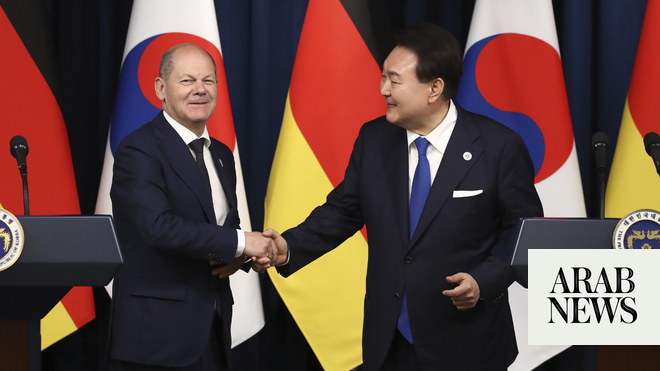
23 EU member states expressed Monday the desire for enhanced military "cooperation" in the hope of achieving European defense integration.
"We are living a historic moment in European defense," said Federica Mogherini, High Representative of the European Union for Foreign Affairs, after the 23 EU member states signed the pact which lists 20 commitments that set rules of the "permanent structured cooperation (PESCO)," according to AFP.
"This will allow us to further develop our military capabilities in order to enhance our strategic independence," Mogherini added.
French Foreign Minister Jean Yves Le Drian, who arrived in Brussels to meet with his counterparts and defense ministers in the European Union, said the initiative was "a response to increased attacks" in the fall of 2015, as well as "a response to the Crimean crisis."
"It was important for us especially after the election of the American president that we can organise ourselves independently as Europeans," German Defence Minister Ursula von der Leyen said.
"This is complementary to NATO, but we also see that nobody will solve the security problems that Europe has in its neighbourhood -- we have to do it ourselves."
PESCO could, in theory, lead to the creation of a European operational headquarters or logistics base, but will first focus on projects to develop new military equipment such as tanks or drones, satellites and military transport aircrafts.
More than 50 cooperation projects have been proposed, Mogherini said, expressing the hope that PESCO will allow "substantial savings" to be made to the "fragmented" European defense industry today, compared to US competition.
Most diplomats and experts see that the French vision of this initiative was overwhelmed by the German vision, as the latter wanted as many countries as possible to sign up, AFP reported.
Several sources in Brussels confirmed that the countries who signed the agreement will commit to "regularly increasing defence budgets in real terms."
Britain, which enjoys the largest military budget in the European Union, has strongly and consistently opposed any proposal to create a "European army," considering that defending the territory of Europe is a task limited to NATO.
Brexit to take place March 2019 is approaching, and London, which has excluded itself, like Denmark, did not wish to obstruct the initiative, which Foreign Minister Boris Johnson describes as "a promising idea."
The EU will also create a fund to boost the European defense industry, with a budget of 5.5 billion euros a year.
The deal is set to be formally launched on the eve of the next EU summit in December.












